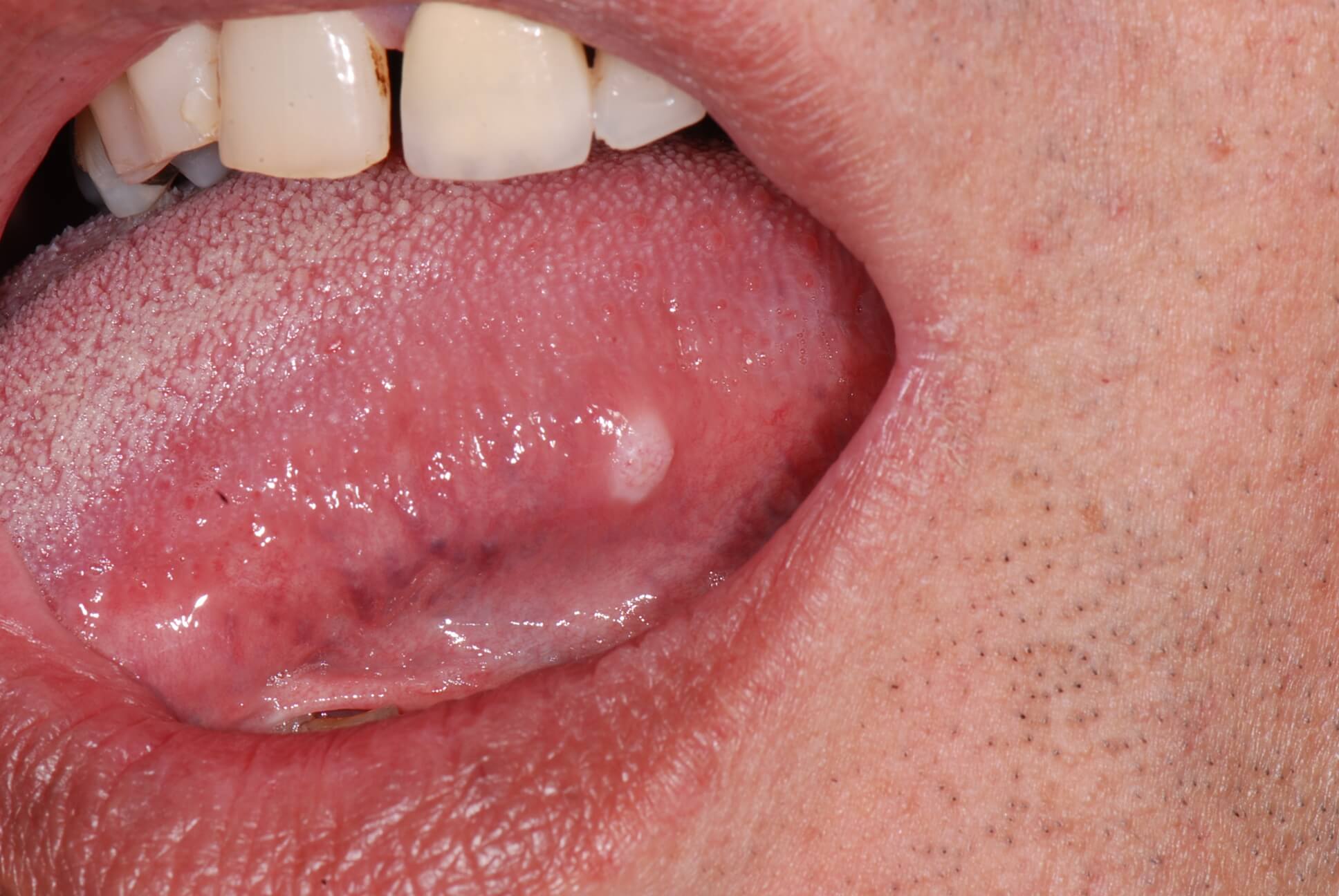What are the symptoms of tongue cancer?
Tongue cancer can present with a variety of symptoms, which may include:
- Persistent sore or ulcer: A sore or ulcer on the tongue that does not heal within a few weeks.
- Pain or discomfort: Persistent pain or discomfort in the tongue or mouth, which may worsen over time.
- White or red patches: White or red patches on the tongue or the inside of the mouth.
- Swelling: Swelling or lumps on the tongue or in the mouth that may feel hard or firm.
- Difficulty swallowing: Pain or difficulty when swallowing, or a sensation of something being stuck in the throat.
- Changes in speech: Difficulty speaking or changes in speech due to pain or movement issues with the tongue.
- Bleeding: Bleeding from the tongue or mouth without an obvious cause.
- Numbness: Numbness or loss of sensation in the tongue or mouth.
- Bad breath: Persistent bad breath or a bad taste in the mouth.
If any of these symptoms persist or worsen, it’s important to seek medical evaluation to determine the cause and receive appropriate treatment.
What are the causes of tongue cancer?
Tongue cancer can be caused by several factors, including:
- Tobacco Use: Smoking or using other tobacco products is a major risk factor for tongue cancer. The carcinogens in tobacco can damage the cells in the mouth, increasing the risk of cancer.
- Alcohol Consumption: Excessive alcohol consumption can contribute to the development of tongue cancer, especially when combined with tobacco use.
- Human Papillomavirus (HPV): Certain strains of HPV, particularly HPV-16, have been linked to an increased risk of oral cancers, including tongue cancer.
- Chewing Betel Nut: The practice of chewing betel nut, often combined with tobacco and lime, is a known risk factor for oral cancers, including tongue cancer.
- Chronic Irritation: Persistent irritation from rough or damaged teeth, poorly fitting dentures, or other sources of chronic trauma in the mouth can contribute to the development of cancer.
- Poor Oral Hygiene: Poor oral hygiene and related conditions, such as chronic gum disease, can increase the risk of oral cancers.
- Genetic Factors: A family history of cancer or genetic predispositions may increase the risk of developing tongue cancer.
- Age and Gender: Tongue cancer is more common in older adults, and men are generally at higher risk than women.
While these factors can increase the risk of tongue cancer, it is important to note that not everyone with these risk factors will develop the disease. Regular oral health check-ups and addressing risk factors can help in early detection and prevention.
What is the treatment for tongue cancer?
The treatment for tongue cancer depends on the stage and location of the cancer, as well as the patient’s overall health. Common treatment approaches include:
Surgery: Surgical removal of the cancerous tissue is often the primary treatment. This may involve removing part of the tongue or, in more advanced cases, the entire tongue. Nearby lymph nodes may also be removed if the cancer has spread.
Radiation Therapy: High-energy radiation is used to kill cancer cells or shrink tumors. It may be used as the primary treatment, especially if surgery is not an option, or as an adjunct to surgery to target any remaining cancer cells.
Chemotherapy: This involves using drugs to kill cancer cells or stop them from growing. Chemotherapy may be used in combination with radiation (chemoradiation) to enhance the effectiveness of treatment, particularly for more advanced cases.
Targeted Therapy: This approach uses drugs that specifically target cancer cells or the blood vessels that supply them. It is often used for cancers with specific genetic mutations or alterations.
Immunotherapy: This treatment boosts the body’s immune system to fight cancer. It may be considered for certain cases of advanced tongue cancer or those that have not responded to other treatments.
Rehabilitation and Supportive Care: Post-treatment care may involve speech therapy, physical therapy, and nutritional support to help patients recover and maintain quality of life. Reconstructive surgery may also be necessary to restore function and appearance.
The choice of treatment is tailored to the individual and may involve a combination of these therapies. A multidisciplinary team of specialists, including oncologists, surgeons, and radiologists, typically collaborates to develop and manage the treatment plan.

Leave a Reply
You must be logged in to post a comment.